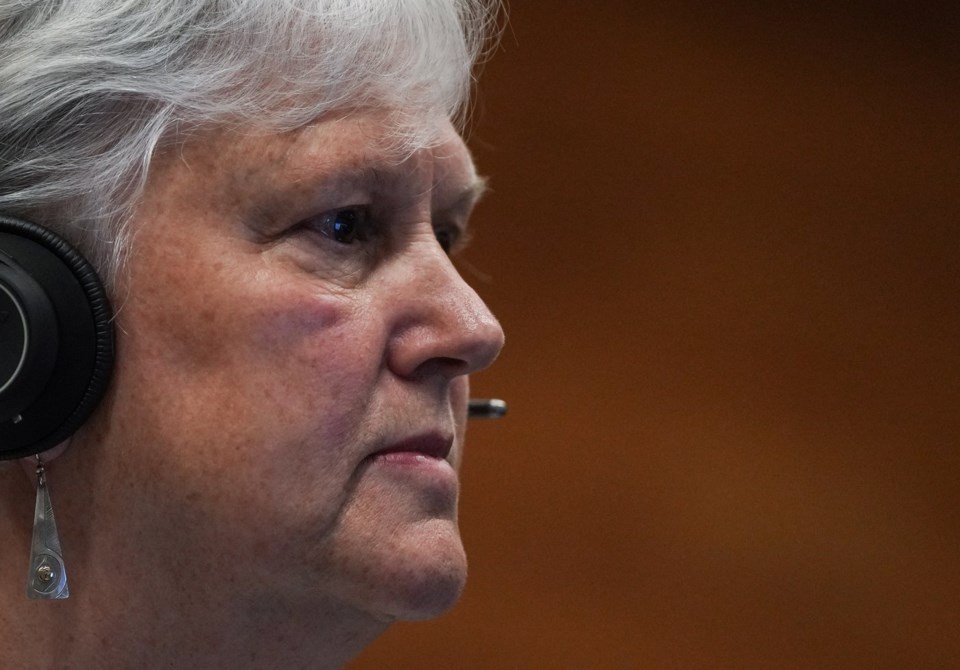VICTORIA — Chronic understaffing, and the excessive workload and burnout that comes with it, has the people in charge of protecting British Columbia's most vulnerable children in a state of crisis, the province's representative for children and youth says.
Jennifer Charlesworth's report says it is the latest in decades of studies laying out how little has changed for people working in the child welfare system.
There are "unrelenting demands for services, unmanageable workloads, inadequate family and community support services to meet the fundamental needs of children and families," her report said.
A multitude of people, ranging from child protection workers to family support workers and specialists, are in an unhealthy work environment, the report says, characterized by stress, burnout and tragic public cases that have eroded the reputation of the Ministry of Children and Family Development as an attractive place to work.
The report predicts problems will likely take a decade to fix, even with a committed effort.
"The ministry appears to be caught in an unfortunate cycle: chronic understaffing leads to chronic excessive workload; chronic excessive workload leads to undue stress, low morale, elevated rates of sick leave and greater rates of staff exits, which place additional burdens on the remaining staff backfilling leaves and vacancies, thereby exacerbating workload and stress. And so the cycle continues," the report says.
It says the ministry has taken steps to improve the situation, including by centralizing screening, establishing a mobile response team and enhancing recruitment, but the actions "have not apparently made a material difference."
Minister of Children and Family Development Jodie Wickens said in an interview Thursday after the report came out, that the ministry was working to increase the size of its workforce and it has seen a 19 per cent increase year-over-year since the COVID-19 pandemic.
"I know the challenges that we're facing are significant and that protection workers have some of the hardest jobs in B.C. I'm committed to making sure that our staffing levels meet the needs of children, youth and families we serve," she said.
"I know that it's very challenging. There's always more work to be done, and I'm committed to do that work."
Charlesworth told a news conference that 80 per cent of the people surveyed as part of the report said they were unable to do their jobs properly because of caseload, while 77 per cent said they didn't have timely access to the community based supports that they would refer people to.
"People want to do this work, they value their colleagues and their immediate supervisors," she said.
"But they feel that the environment, the trust in the senior leadership, the lack of access to the tools and supports that they need to do their job, is making it increasingly difficult."
The 132-page report makes 17 recommendations, including setting timelines for when they should be implemented.
They include calls for better training and pay, and public reporting of how actual staffing levels around the province compare with what is required.
Charlesworth is also the latest in three decades worth of officials to call for mandatory legal professional regulation of child welfare workers and an independent regulatory body.
In B.C., child welfare workers at the ministry don't need to be registered in the British Columbia College of Social Workers or any regulatory body, she said.
"An independent regulator, regulatory body, is necessary for public confidence to ensure professional development, to provide the public with an avenue for complaints and concerns," she said.
Charlesworth said not everyone working in the system has to have post-secondary degrees or be a member of the college, and that the new rules could recognize different categories of workers.
The report calls for regulations to be in place by June 30, 2026, and a regulatory body created by April 2027.
Wickens said her ministry has accepted Charlesworth's recommendations but would not commit to implementing the regulations, saying only that it was something the ministry was "considering."
"I recognize oversight is an incredibly important part of this work to ensure that children and youth are safe, and that needs to be balanced with our recruitment and retention challenges and our ongoing work on changing the ways that we do things in the child welfare system," she said.
At the news conference following the release of the report, Charlesworth was interrupted when a participant shouted racial slurs and then began showing a pornographic video.
The video aired for several minutes before the meeting was ended.
This report by The Canadian Press was first published Feb. 6, 2025.
Ashley Joannou, The Canadian Press

.jpg;w=120;h=112;mode=crop)

